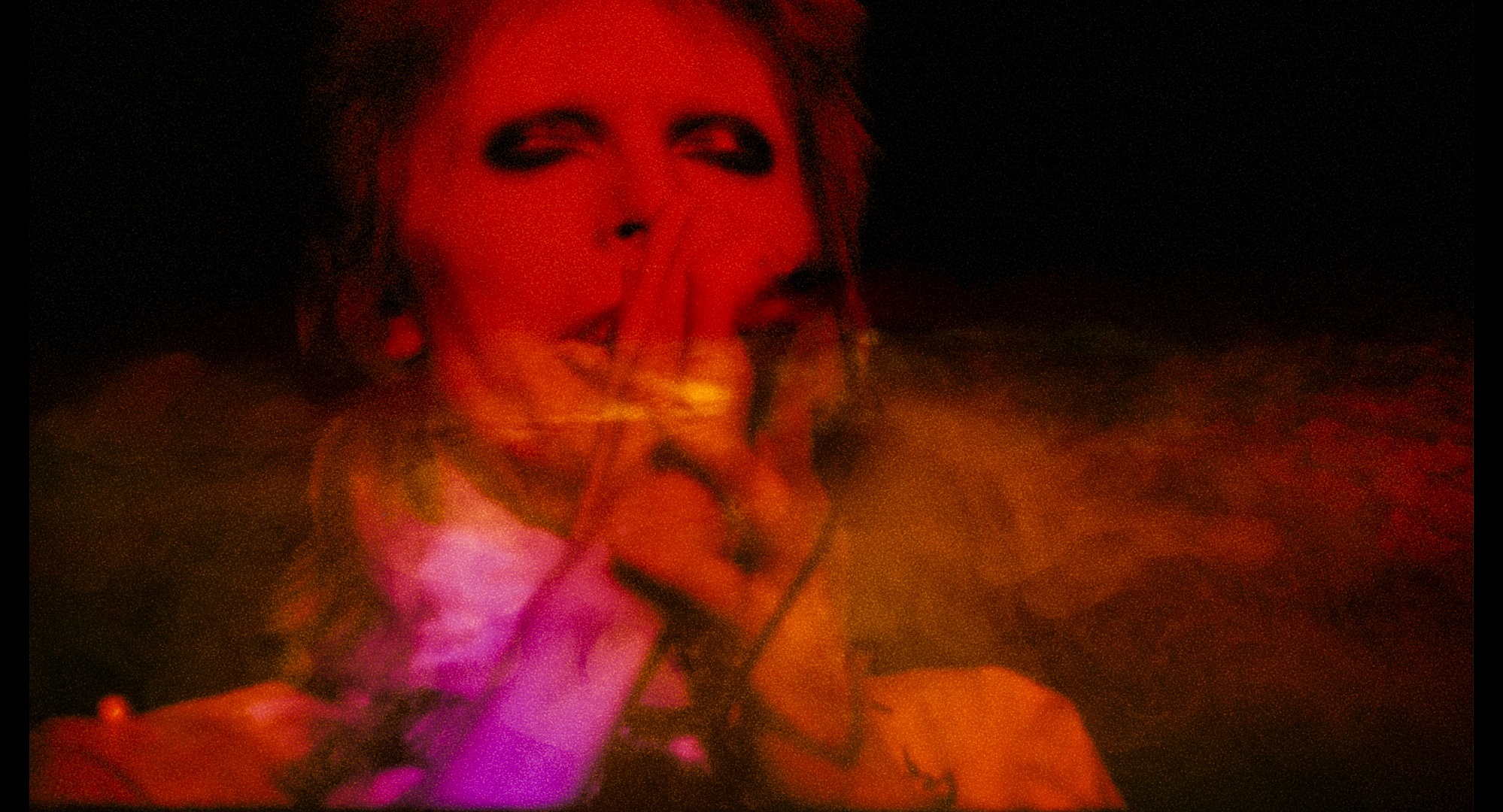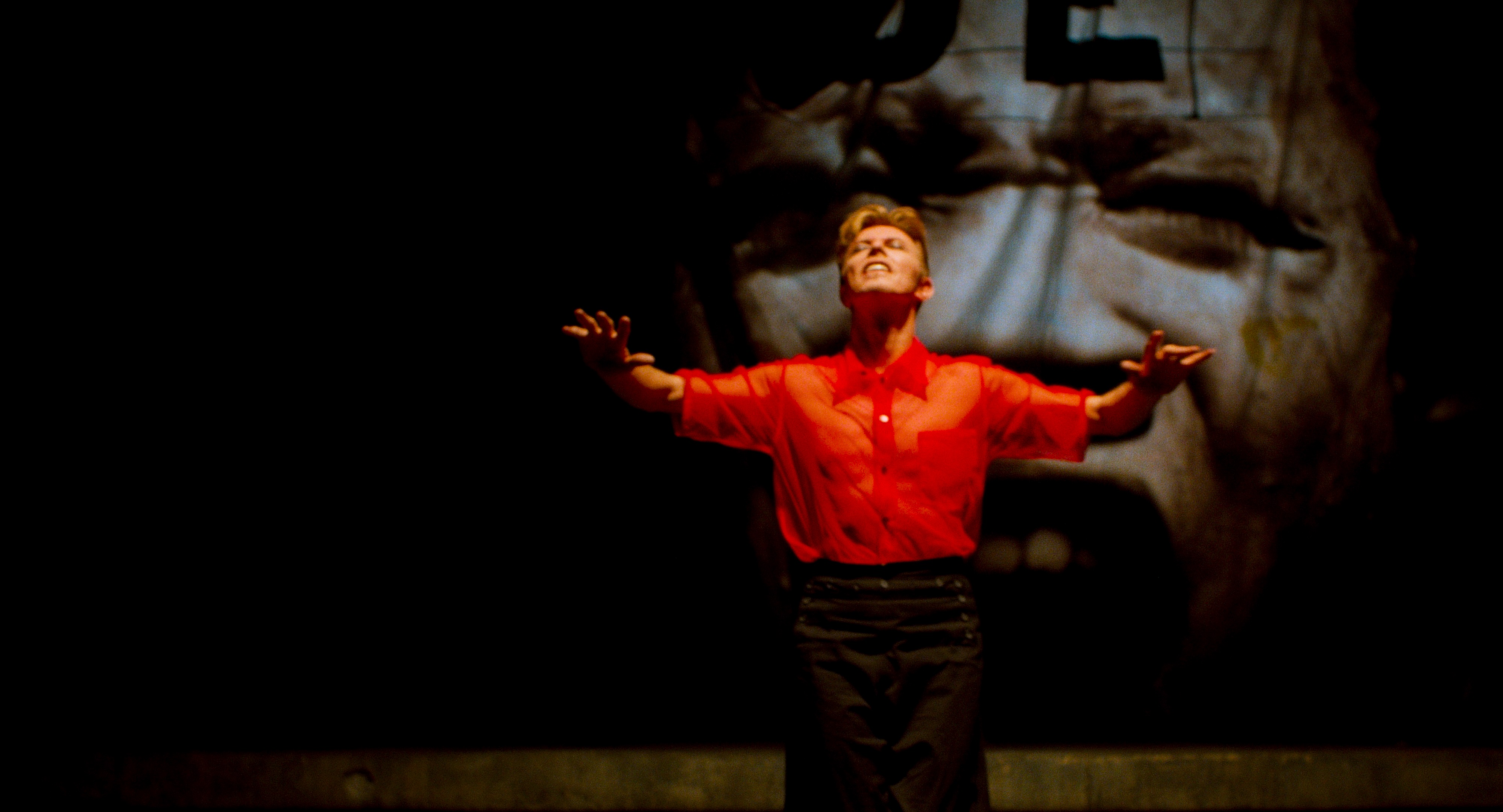Watching Bowie for the only time in what turned out to be his last tour in 2003, I wanted glamour and mystique, Ziggy preserved. Instead here was ordinary bloke Dave, badly dressed in faded jeans and a mismatched top. The beautifully sung, committed performance largely passed me by, as I ached to love the absent, alien Bowie.
Brett Morgan’s estate-sanctioned, IMAX-ready, sense-splattering film simulates the fiery trail of Bowie’s earlier, comet impact. Just as his official Stones doc Crossfire Hurricane extracted Jagger’s most revealing band narrative over a torrent of era-defining footage, so the late Bowie’s words author this digital maximalisation of his cut-up techniques. They also reveal what I mistook in that later, resolutely human performer. Rather than a sad betrayal of rock promise, I witnessed the grateful healing of a damaged soul. Bowie the cracked actor who mined the Seventies’ fault-lines, matching The Beatles in making cultural and musical waves his own, had a personal arc too, which gives Moonage Daydream its emotional shape.
“Hallo Spaceboy”, the 1996 single which reclaimed Major Tom’s elusive, totemic spirit, soundtracks an ecstatic opening montage, the component parts of Bowie’s vision cohering like cosmic dust. “There is no scissor-cut – no absolutes,” he says; life is “labyrinthine”. An essentially chronological narrative therefore also mashes footage into an eternal Bowie now, attempting a new, posthumous experience akin to Abba’s absent concert comeback.
 Morgan had access to an unseen archive trove, including superb concert footage, here cut into brilliant shards. In the early Seventies, “All the Young Dudes” brings a tearful rush of familiarity at its glorious, precisely hip youth anthem. “We took it on our shoulders that we were going to establish the 21st century in 1972,” Bowie explains. The Beatles’ “Love Me Do” is glammed up and roared back, harmonica rasping and leaping, an act of homage and replacement. “Heroes” is sung new, Bowie and the fans finding their way into its exulting.
Morgan had access to an unseen archive trove, including superb concert footage, here cut into brilliant shards. In the early Seventies, “All the Young Dudes” brings a tearful rush of familiarity at its glorious, precisely hip youth anthem. “We took it on our shoulders that we were going to establish the 21st century in 1972,” Bowie explains. The Beatles’ “Love Me Do” is glammed up and roared back, harmonica rasping and leaping, an act of homage and replacement. “Heroes” is sung new, Bowie and the fans finding their way into its exulting.
Meanwhile, TV interviewers intimately, perceptively probe beneath Bowie’s masks, till his soot-black Brixton childhood house comes into focus. The boy Bowie was unloved and miserable there, with a cold fury to escape evident in his voice decades later. His beloved half-brother Terry plotted his path out with gifts of Kerouac and Coltrane, till national service caused his schizophrenia and death. Bowie remembers “emotional and spiritual mutilation in my family”. Later, “there was no basis to my life. I would do things to prove that I had emotional substance. Where in fact I didn’t.” He sought the “therapy” of art, fearing love as an obstacle to its achievement.
All this is clear, too, in the BBC’s richly authoritative Finding Fame documentary. Morgan seeds the secret scars which propelled Bowie within more visceral immersion in the “small universes in the mind” he created in recompense. The resulting life was rarely a tragedy, more a glorious adventure. “Why are you creative, David?” Russell Harty asks. “To set sail,” he declares.
 The Eighties bring a carefully argued courting of mass popularity by a majestic pop performer playing to bigger, blander crowds. Fractured footage makes this success seem like Ziggy and the Spiders’ dreamed future, a late montage in a fictional biopic.
The Eighties bring a carefully argued courting of mass popularity by a majestic pop performer playing to bigger, blander crowds. Fractured footage makes this success seem like Ziggy and the Spiders’ dreamed future, a late montage in a fictional biopic.
Morgan intercuts the mega-concerts with film of blonde Bowie wandering Pacific malls in a Panama hat, an Aryan ghost, and his crumbling vampire in The Hunger. “I’ve come to the vacuum of my life,” he says. “A realisation that you’re missing out on your own life, and the house must be put right”. Marrying Iman and raising a child was the outlandishly conventional, profound healing act. Morgan hardly bothers with Bowie’s actual 21st century, mostly spent as a finally whole, private person in New York.
The furiously pounding hyper-footage and frenetic recomposing wears off by Moonage Daydream’s end, acting as its own numbing anaesthetic. The story of the boy adventurer who saved himself stays beating at its heart.















Add comment